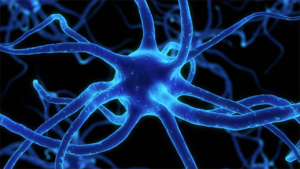There are a lot of articles on the internet about dopamine and how it affects your mood, behavior, energy, and focus. What’s not commonly spoken about, however, is how dopamine is affected by your perception. Discussed more rarely still is the reason why your dopamine levels may be low.
Below are 8 ways to increase your dopamine levels, courtesy of Power of Positivity,
What is Dopamine?
Dopamine is a naturally occurring chemical in the body that controls movement, emotional responses, pleasure, pain and motivation. Dopamine is a neurotransmitter that helps to ensure that the brain works properly with your body. Therefore, creating a balance of dopamine is essential to your mental and physical health. If your doctor has determined that you have a dopamine deficiency, there are steps you can take to increase the levels of dopamine in your body.
1. Don’t Get Addicted
“Many people get addicted to something because it gives them some kind of instant gratification – drugs, alcohol, sex, pornography, shopping, and other addictive behaviors actually have the opposite effect on dopamine levels in the long-term. In essence, when we get overly addicted to something, the ‘reward circuitry’ of our brain kicks into overdrive and we crave the ‘quick hit.’ This is not a sustainable solution for dopamine production, which can and should be done naturally.”
What’s missing here is the fact that addiction is quite often a result of low dopamine, meaning addiction is more of an attempt to fix an already existing problem. In essence, “the underpinning of your addictive personality is a lack of fulfillment from within, with a resulting urge to achieve fulfillment through substances, objects, or events that relieve the inevitable pain – for a while.”
What’s necessary, then, is less of a ‘don’t get addicted’ approach and more of an ‘increase the rewards in your life’ style of applied advice. The fact is, you’ll constantly feel less fulfilled through low dopamine when you’re not (or are unable to) fill your day with things that inspire and reward you. What this means is, the most effective protection against addiction and the greatest advantage to high dopamine levels is a defense against low-rewarding activities and an offence of rewarding actions, activities, and ultimately, a lifestyle of fulfillment and achievement.
2. Checklist Small Tasks
“Dopamine increases when we are organized and finish tasks – regardless if the task is small or large. So, don’t allow your brain to worry about things that need to be done. Instead, write these tasks down and then check them off one at a time. It’s been shown that it’s more satisfying to the brain’s dopamine levels when we physically check something off of our to-do list. Also, write down and check stuff off regardless if you can mentally remember the tasks.”
In the book, Principles of Self-Management a brilliantly well-researched understanding of motivation is written about when it comes to tasks. In short, if a task is greater than 25% of a change in a person’s routine, the person will be overwhelmed and feel incapable of achieving it. This leads them to self-defeat and self-sabotage to avoid accomplishing the task. On the other side, if a task is less than 10% different from a person’s normal routine, they won’t do it because it won’t have enough meaning for them to do so. As such, it’s wise to make sure you write down goals and tasks that are in between this 10-25% range of new behaviours and actions; otherwise, you just won’t do it.
However, this 10-25% range is simply a guide for tasks that are not directly linked to our highest values. In reality, if you can link a task to your highest values and see clearly how it will help you accomplish what’s truly most important to you, you’ll do it. If you can’t see how it will help fulfill your highest values, you’ll procrastinate, hesitate, and get frustrated in the attempt to do it. By linking a task to your highest values, you’ll both increase the chances of you doing it and also increase the reward you will feel when you accomplish it, a result of producing more dopamine in the brain.
3. Exercise
“Same old exercise again” yes I know . We’ve discussed repeatedly the importance and benefits of physical exercise, and we’re just going to add to this list again. So, not only does exercise help us relieve stress, achieve better physical health and make us more productive; it boosts our dopamine levels. More specifically, exercise increases multiple neurotransmitters – serotonin and endorphins, besides dopamine, receive a boost. Here’s something else cool: the exercise needn’t not be arduous. Simply taking a stroll or climbing some stairs will achieve a good dopamine jolt.”
Exercise is important, but it can also become a crutch or an addiction if it’s not something being integrated into your daily life. One of the easiest way to integrate exercise into your daily routine is through ‘Functional Training ‘ in which exercises are tailored to help you with your daily tasks. This is much more helpful than just ‘workouts,’ because if you can train your body into a state where your daily tasks are not taxing on your energy, you’ll breeze through the day and have more energy at the end of it. Staying in a high energy state instead of being brought down by your daily tasks will help you be more inspired during your day and innately feel more inspired to exercise.
4. Increase Tyrosine
“Of the chemicals that make up dopamine, none are more important than tyrosine. In fact, tyrosine is considered the building block of dopamine. Therefore, it is important that you get enough of this protein. There’s a large list of foods that increase Tyrosine, including: Almonds, Avocados, Bananas, Beef, Chicken, Chocolate, Coffee, Eggs, Green Tea, Watermelon, Yogurt.”
5. Listen to Music
“Do you ever wonder why music makes you happy? I mean, we can be in the dumps one moment but once we put on our favorite jam, we’re swaying and shaking away…feeling pretty good about ourselves too! The reason for this is that listening to music increases dopamine levels. In fact, scientists say that listening to music has the same effect as eating our favorite foods or watching our favorite T.V. show. So, when you’re feeling down, throw on some of your favorite tunes and jam out!”
6. Meditate
“As with exercise, we are discovering more and more benefits to meditation. We are again adding to the list. As we discussed, the human brain is susceptible to a variety of addictions. One other addictive habit that we have is overthinking. In fact, some Buddhists have a phrase for this addiction: ‘monkey mind.’
Overthinking is not merely a distracting habit, it’s also a genuine compulsion that leaves us in a perplexing state, while also having a negative effect on our spiritual development. However, scientists are finally catching up to what Buddhists have known for thousands of years: meditation and mindfulness are essential to a healthy mind.”
7. Take Supplements
“While there are some great ways to increase dopamine levels, sometimes we’re facing a time crunch. Fortunately, there are natural supplements on the market that have been shown to increase dopamine levels. Here are a few:
Acetyl-l-tyrosine: Another building block of dopamine. A healthy dose of this makes it easier for the brain to produce dopamine.
Curcumin: An active ingredient that’s also common in curry spices and turmeric.
Ginkgo Biloba: A tremendously popular wonder supplement that’s also believed to boost dopamine levels and keep it circulating in the brain longer.
L-theanine: Increases multiple neurotransmitters in the brain, including dopamine. Green tea is a terrific source for this.”
8. Toxic Cleansing
“As miraculous as our bodies are, we do accumulate toxins and bacteria that is bad for us. Endotoxins are the kind that can cause our immune systems to get out of whack, and it also constrains the production of dopamine. Here are a couple tips for helping cleanse the gut of endotoxins: eat fermented food, get enough sleep, and resist the urge to indulge in fatty or sugary foods.”
Whenever you’re not fulfilled in your life, you run the risk of overindulging in sugary and sweet foods in an attempt to temporarily fulfill yourself. However, if you find fulfillment through the challenge and support of your day, you’re more likely to eat for the tasks you’re doing instead of eating just to feel good.
How you eat and how fulfilled you are is directly correlated. If you’re actively enjoying the challenges of your life, you’re more likely to consume foods that serve your highest interests and health, because you see a reason to eat well. Controlling how you eat is less important than finding fulfillment in what you do.
So the next time you find yourself craving that candy bar, ask yourself if there isn’t something else you could eat that could help you find fulfillment. Also, notice what you are doing at the time you’re craving sugar and ask yourself if it’s really something you need to do, or can you delegate it to someone else so you can get back to things that inspire you. By focusing on what inspires and fulfills you, you’ll find yourself actively seeking to better your health without having to really focus on it.
source: http://www.collective-evolution.com



Recent Comments